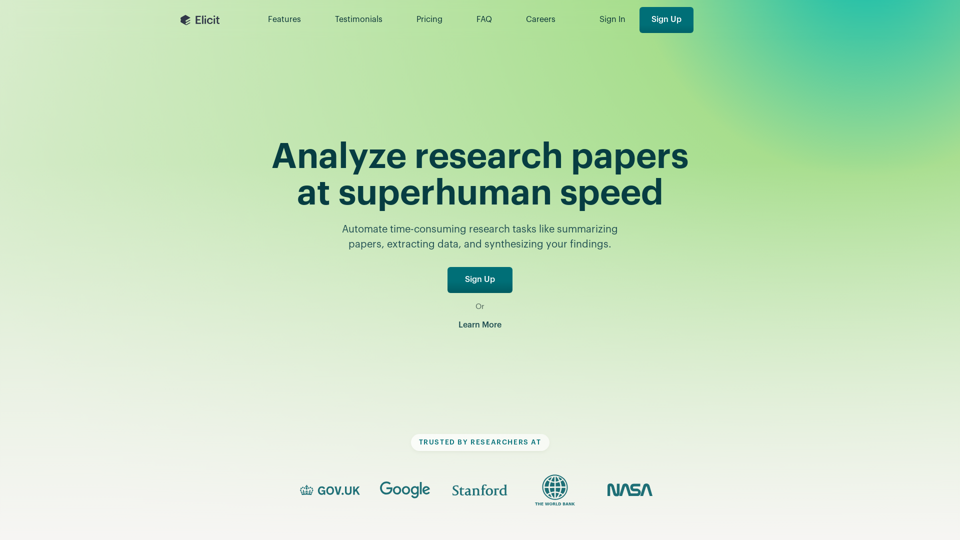What is Elicit?
Elicit is an AI research assistant that automates time-consuming research tasks like summarizing papers, extracting data, and synthesizing findings. It provides access to a vast array of AI technologies for various research needs.
Features of Elicit
Elicit offers a range of features to speed up research, including:
- Tons of features to speed up research
- Drag and drop PDFs or click to browse
- Upload your own PDFs
- Orient with a quick summary
- Ask questions to papers
- Extract details from papers into an organized table
- Synthesize findings across many papers
How to Use Elicit
Elicit is designed to be user-friendly and easy to use. Here's how to get started:
- Sign up for an account
- Upload your research papers or search for papers in the database
- Ask questions to papers and get answers
- Extract data from papers and synthesize findings
- Use the features to speed up your research
Pricing of Elicit
Elicit offers different pricing plans to suit different research needs, including:
- Basic: For students doing casual exploration, $0/month
- Plus: For independent researchers doing deeper research, $10/month (billed annually)
- Pro: For professional researchers doing systematic reviews, $42/month (billed annually)
- Enterprise and Institutions: For teams, companies, and educational institutions, custom pricing
Helpful Tips for Using Elicit
- Use Elicit to speed up literature review and automate systematic reviews and meta-analyses
- Use Elicit to learn about a new domain and find papers you couldn't find elsewhere
- Elicit tends to work best for empirical domains that involve experiments and concrete results
- Always double-check the accuracy of the answers generated by Elicit
Frequently Asked Questions
- How do researchers use Elicit?
- Researchers commonly use Elicit to speed up literature review, find papers they couldn’t find elsewhere, automate systematic reviews and meta-analyses, and learn about a new domain.
- What is Elicit not a good fit for?
- Elicit does not currently answer questions or surface information that is not written about in an academic paper. It tends to work less well for identifying facts and in theoretical or non-empirical domains.
- What types of data can Elicit search over?
- Elicit searches across 125 million academic papers from the Semantic Scholar corpus, which covers all academic disciplines.
- How accurate are the answers in Elicit?
- A good rule of thumb is to assume that around 90% of the information you see in Elicit is accurate.
